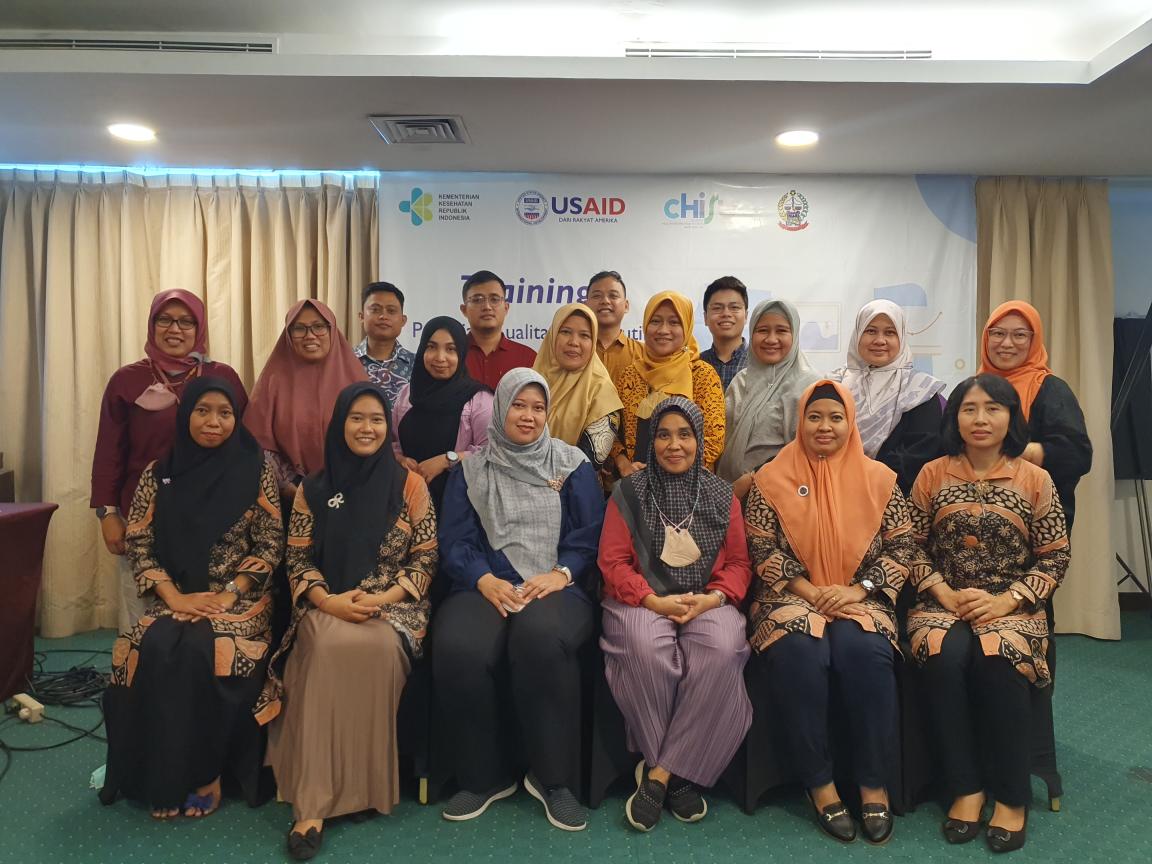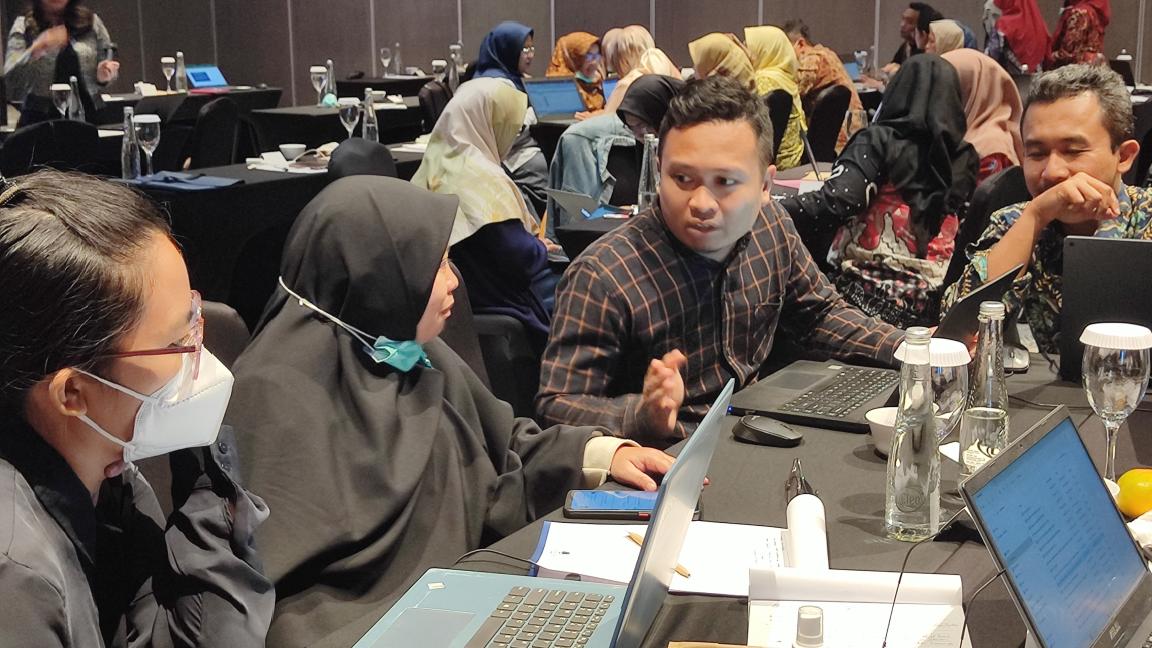Turning data into action to improve health outcomes entails having processes, tools, and a workforce that’s able to assure that data are high-quality. To help address this need, CHISU is working with Indonesia’s Center for Data and Information (Pusdatin) to roll out the World Health Organization’s Data Quality Assurance (DQA) module, adapted to the country’s context and needs.
Data quality assurance includes a set of processes, methodologies, and practices designed to ensure that data is available, accurate, consistent, complete, and relevant for its intended use. It involves systematically checking and validating data to identify and correct errors, data noise, inconsistencies, or anomalies that may compromise its integrity.
In collaboration with Pusdatin, CHISU conducted a series of DQA training sessions for data officers and relevant personnel working in tuberculosis, maternal and newborn health, and health financing programs in Jakarta, East Java, and South Sulawesi. Participants were oriented to the concept of data quality and trained on the use of data quality assurance tools, and were then tasked with developing a plan to conduct a data quality assessment. Following this training, CHISU will provide mentorship support for the data quality assessment, including a desk review and verification exercise.
“We believe that quality data is the beginning of quality and impactful policy for public health in DKI Jakarta,” said Dr. Verry Adrian, Head of the Data, Information, and Public Relations Section at the Special Capital Region of (DKI) Jakarta Provincial Health Office (PHO). “With the support from USAID CHISU, DKI Jakarta PHO is committed to continuously improving not only the quality of health data, but also the capacity of the personnel who gather, manage, and utilize said data.”
Similarly in South Sulawesi, training will be followed with implementation of monthly DQA across various levels of the health sector, from the primary care facilities, to the districts, all the way to PHO. This activity is also done to support Makassar City and Maros District to improve their Digital Maturity Index scores, which are based on the Health Information System (HIS) Stages of Continuous Improvement (SOCI) framework, particularly the component of HIS resources management.

“Accurate, reliable, sustainable, timely, and up-to-date data and information have a very important role in the era of health transformation,” said Farida Sibuea, Lead Data Analysis Team at Pusdatin, in her opening remarks for the training in Makassar on Thursday, August 3.
In East Java, the training will cover four districts/cities: Sidoarjo District, Malang District, Jombang District, and Mojokerto City. The evaluation as well as capacity building of data completeness, timeliness, and validity are typically done at the end of year at the district health office (DHO) level and mid-year at the provincial health officer (PHO) level. This calls for specific expertise in assessing the quality of health data by managers of various health programs, aiming to minimize risks of having incomplete data, outliers, and other inaccuracies.

“Desk review activities carried out routinely every month at the health facility, district/city, provincial, and national levels will undoubtedly ensure the quality of existing data,” explained Lalu Lian Hari Wangi, CHISU’s Senior Data Management and Use Specialist in Indonesia, at the DQA training in Malang District.
While DQA training and the initiation of processes are important, they’re just the first step. CHISU will continuously provide mentorship support to the PHOs and DHOs, ensuring institutionalization of the DQA process and creating an environment that enables the shift from data to action.